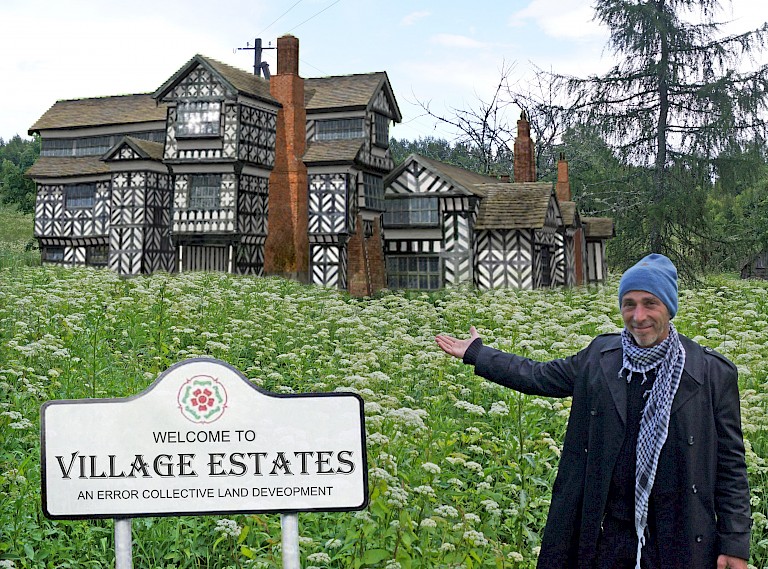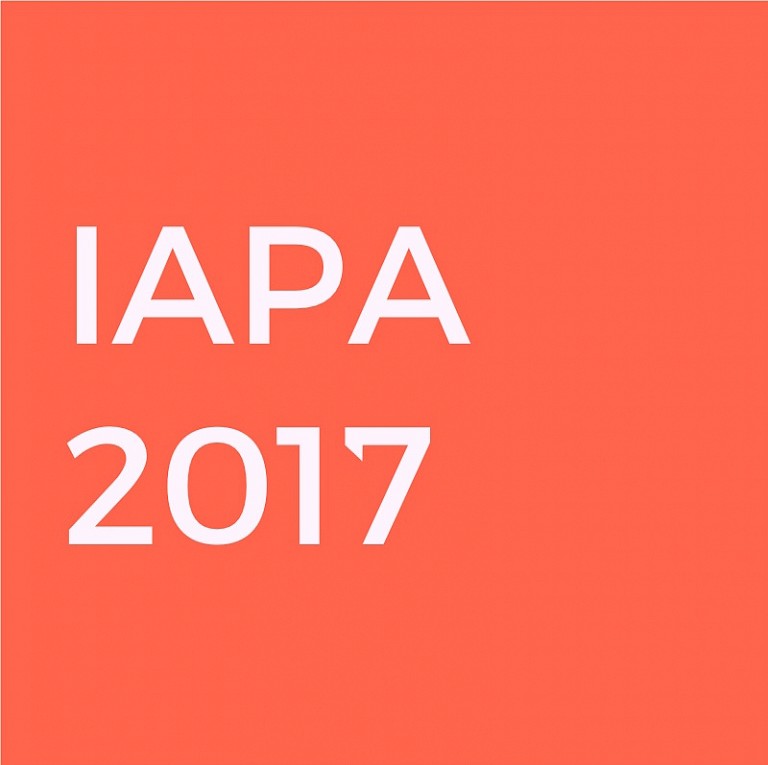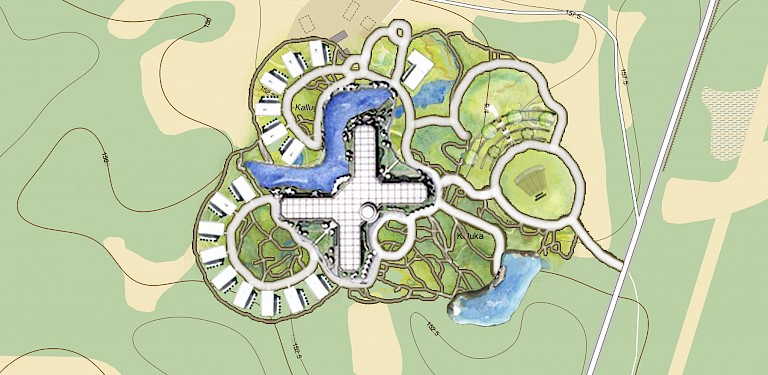



“Village Estates” reveals the possible histories and potential future of Kaluka, an abandoned village in southern Estonia. The artists marked the physical location using QR codes, signs and symbols in order to settle there a collection of photographic, anecdotal, and geographical data. Using the collected data, Errorists created digital representations of possible histories and future potentialities of the site and placed them online. Visitors of the area may access the information by reading QR codes with mobile devices to imagine the site in terms of its potentialities, reflecting on the questionable standards and superficial policies of a market-driven culture. The project playfully structures and reopens the uninhabited rural wilderness by means of omnipresent digital media. It parodies (thus letting one track these down) the sociocultural and economic mechanisms that erase particular spaces and environments from our mindmap only to resell symbolic access to them as a privilege. The artists enhance this understanding by appropriating common neoliberal language, stating that they “build social capital by face to face networking through shared values and common vision”.
While working with an uninhabited area, Error Collective tried to bring the communicational aspect of the project out to the web, which at the moment is practically the only way (apart from a long drive) to make places like Kaluka available to the public. Error Collective made videos in Kaluka village and appropriated content from the web, remixed the materials, and published a website [www.villageestates.weebly.com] with video advertisement proposing a fake land development scheme where you can “buy” shares in a summer cottage complex called Village Estates. The artists comment that “data mining for multinational corporations in lieu of investment capital is a thinly concealed neo feudal system”, therefore it takes a slight gesture like artistic imitation to reveal it. The project offers to “join the community” online and “own a part of the European countryside”, reclaiming the abandoned and commodified landscapes with artistic tactics. The offer to conduct a project came from MAAJAAM — an artist-run project space that pioneered the frontier of Estonian rural milieu in order to reflect on the relationships between people, technology, and nature. It conducts ongoing residency programmes for international artists and researchers in the space of an old farm. Within their residency, Error Collective also presented an exhibition based on digital materials from Kaluka and made guided tours prior to presenting the work in its actual format.
The project broadens the idea of public art by embracing important connections of any given locality and community with land, capital, information, technology, and modes of everyday life. It also demonstrates the emancipative and critical mission of art, inseparable from knowledge production.
The project succeeded in raising the issue of village demolition for the sake of market, and contributed to popularizing the MAAJAAM artistic residencies focusing on rural areas in Estonia. It presents a rather unique example of a way to connect material and digital environments in a subversive way.
All copyright belongs to Shanghai Academy of Fine Arts, Shanghai University.



